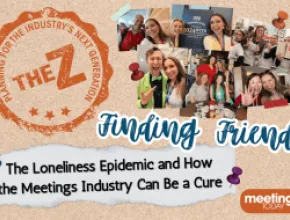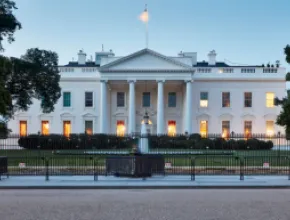While DEI, or diversity, equity and inclusion, is under attack both at a legislative level as well as in corporate America, four meetings industry leaders who spoke at PCMA Convening Leaders 2025 had a lot to stay about its status as well as strategies to keep the flame burning in the travel industry and beyond.
Addressing a packed meeting room at George R. Brown Convention Center in Houston—perhaps a testament to its continuing relevance to the meetings industry—during a panel discussion moderated by National Coalition of Black Meeting Professionals CEO Jason Dunn, three leaders representing industry associations and a DMO offered their take on a concept that has taken fire in many quarters.
Attempts to Dismantle DEI
The “The Impact of DEI Policy & Legislation on Travel” session was kicked off by Melissa Cherry, chief diversity and inclusion officer for Miles Partnership, which has conducted major industry studies regarding DEI.
“In the 2000s, conservative groups began publishing critiques of affirmative action and identity politics,” Cherry said while showing slides from a variety of research sources. “These early efforts laid the groundwork for broader critiques of race-based policies, often arguing that they promote reverse discrimination. ‘Key intellectuals’ at these organizations begin arguing more vocally against DEI initiatives and police reform and education. One think tank published articles and reports that question the effectiveness of DEI programs in higher education, especially criticizing affirmative action as discriminatory against whites and Asians. Thus ensued later lawsuits that have continued to fuel this anti-DEI work.
“Just recently, over the last few weeks, [there has been increasing] pressure either for maintaining or dismantling programs in response to public debate,” Cherry continued. “We've seen this manifest in public statements, lawsuits and actual altered hiring practice and diversity goals. We have seen these rollbacks at corporations, most recently at Meta, Amazon, Walmart, McDonald's, Ford Motor Company, Harley Davidson and Tractor Supply Company. We have also seen corporations reaffirm their commitment just last week. Apple’s board voted to remain committed to DEI initiatives and Costco, Cisco Systems, American Express and other companies, just to name a few, are still committed to DEI work.”
Cherry said that a 2024 Miles Partnership survey of just over 500 planners across the corporate, association, third-party and sporting events segments of the meetings industry found that just under half indicated controversial issues such as state or local laws regarding racial and gender equality caused them to reconsider a destination, which was down a little more than 4% from a similar study in 2023.
Cherry added that the recent “Future Partners, The State of the Meetings & Conventions Industry, 2024” survey of more than 450 meeting and event planners conducted by Future Partners, Miles Partnership and Digital Edge revealed political issues remain very relevant to planners and their organizations.
“Politics does remain a notable influence on sourcing,” Cherry said. “Forty-nine percent of planners said that they reconsidered a destination in 2024 due to controversial issues and 56% anticipate political influence on destination selection to grow this year, in 2025. The most common issues that promoted destination reconsideration in 2024 and looking into 2025 are racial equity and gender equality concerns, general political reputation and social unrest.”
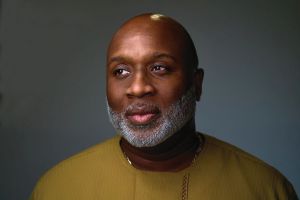
In turn, Dunn kicked off the panel discussion with a basic statement about the moral imperative of diversity and inclusion.
“There is no right or wrong side,” Dunn said of the nature of discussion that was to unfold and the responsibility of industry leaders to drive the conversation and action. “It's the side of business and the side of morality and humanity.”
Dunn’s thoughts were echoed by Annette Gregg, CEO of SITE.
“What does your membership expect you to do? What are you mandated to do and then what should you do? Because it's the right thing,” Gregg said. “We're a small association—3,000 members in 78 countries. So, we're going to get to the international complexity of DEI.
“We choose to line up with the EIC [Events Industry Council] and with our sister associations to do the right thing,” she added. “The short answer is, you have to get engaged. You have to have an opinion. You have to have a point of view...If you're not having an opinion, then that's saying something, too.”
[Related: Where Are We Four Years After the Murder of George Floyd? Elliott L. Ferguson II Offers Perspective.]
Politics in Play

There are a lot of politics, both internal and external, in the job of leading DMOs and associations, from working with local, state and the federal government to key stakeholders and members within their own organizations. For his part, Visit Baltimore President and CEO Al Hutchinson and other panelists advocated for understanding the concept of DEI on a much broader level and as more of a basic moral imperative.
“We’ve allowed politics to get in the way of what DEI is meant to be,” said Hutchinson, who has been a leader in meetings industry DEI efforts. “DEI is not a black and brown issue. It’s a human issue.
“Indigenous people, LGBTQ+ folks who aren't a part of those systems, don't feel they're part of change, and that's something we all have to face. That's reality,” he added. “Systems have been put in place for some people not to benefit from what this country has to offer, so we accept that as a premise that says to everybody in this room that we have to have impact and we have to make change. And I will say to you as leaders, your voice matters, and you’ve got to step up. What are you going to do to make a difference for your kids and your grandkids? We get too caught up in this tribal conversation and I'm over that. We need to make a difference and lead from your heart.”
[Related: What Meeting Planners Need to Know About Destination Boycotts]
Association Input
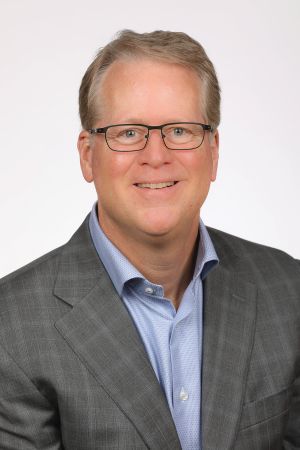
The two industry association representatives, Gregg and Paul VanDeventer, president and CEO of MPI, acknowledged the complexities of representing the diverse quilt work of their membership, which consists not only of members from different racial groups and with different political leanings, but also members and leadership from different countries with vastly different cultural values.
“Most associations, by nature, have a very diverse membership,” VanDeventer said. “From a political perspective, politics today are divisive. So, if we take the politics out and go to the values, I think that's where we can continue to push the right thing. If your values are around diversity, if they're around creating safe environments, if they're around collaboration, focusing there enables you to empower and engage your membership, to drive actions against those initiatives. I want to make sure we're following the core principles of professionalism…of having a diverse membership, being open and collaborative, fighting harassment and really making sure we create a safe environment at any MPI event.
“More importantly,” he continued, “our members who design events are also doing the same. So we try to get at it more from the values than the politics. When it comes to the politics, we, as a 501(c)(3), can't lobby, so we lean into organizations like U.S. Travel mostly for the ability to lobby. So, when we sit around that table, we make sure they're taking forward the core initiatives that are important politically for us, but try to keep the focus internally around values.”
Gregg said that the most recent SITE Incentive Travel Index study showed interest in DEI as a priority on a bit of a decline, but that may mostly be attributed to worries about the stagnation or decline of incentive travel budgets rather than a value judgement about DEI.
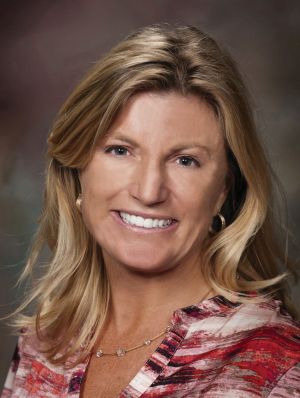
Conversely, however, Gregg said that another survey only of U.S. corporate planners found that issues such as DEI still carried weight with respondents.
“Their No. 1 priority is taking programs to places where their attendees feel safe,” she said. “So, what does safe mean? It could mean that they feel welcome, that they feel they're going to be treated equitably. It could mean that they just don't want war in the streets, too, so we just have to peel back the onion a little bit on that response. But then our global surveys are where we're seeing DEI as a priority shift downward.”
Gregg added that because of the very global nature of SITE, with key stakeholders originating from a variety of nations, many may believe that aspect reflects diversity, which is a challenge when viewed through a primarily U.S.-based lens of DEI mostly reflecting racial, gender and sexual orientation.
[Related: Future-Focused Leadership: Balancing Today’s Needs With Tomorrow’s Vision]
A Matter of Values
VanDeventer believes that meeting professionals have a responsibility to push back against legislation that can be perceived as discriminatory.
“We have a definitive obligation to help drive positive change against all these initiatives,” he said. “We also have to be respectful about the kind of organization we are and try to take the politics out and go back to the value side.
“The more we want to have an influence in our industry, the more we want to have an impact on workforce development, the more we have to be putting forward key efforts to diversify our membership, diversify our community, provide safe environments,” VanDeventer added. “And if I can keep building the business case around that and try to avoid the red and blue discussions, we are able to continue to move things forward. As soon as I take it from the political perspective, we get shut down and we create divisiveness within our own associations. I think that it's a fine line associations have to walk.”
Hutchinson argued that the U.S. especially is in a polarized environment in which most people exist in a self-reinforcing bubble that remains comfortable.
“We're at a point in this country, and in the world globally, that we just want to talk to people that make us feel good,” he maintained. “We just want to have a conversation with people who look like me, talk like me. And from my experience, we have to get to a place of talking to folks who don't agree with you, don't come from your experience, if you want to win in this new economy. And young folks, this next generation, they don't want to be a part of you because your leadership is a dinosaur. So, this is a conversation all of us need to have ourselves…It’s about us in this room, to make this change.”




